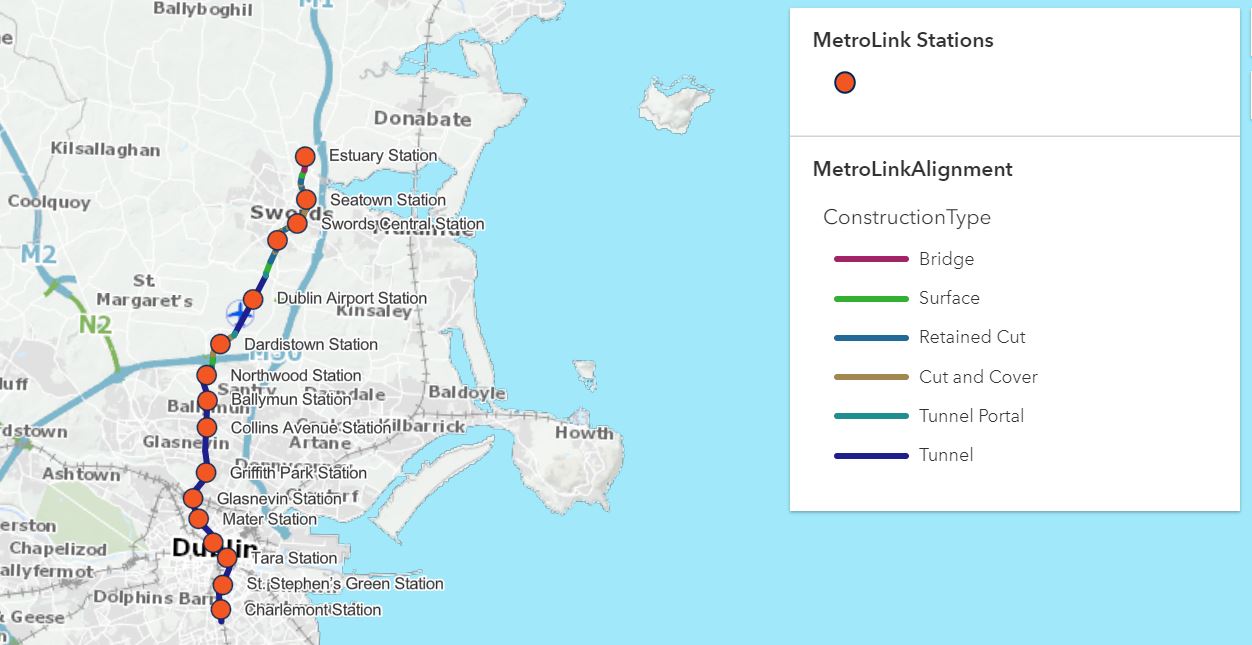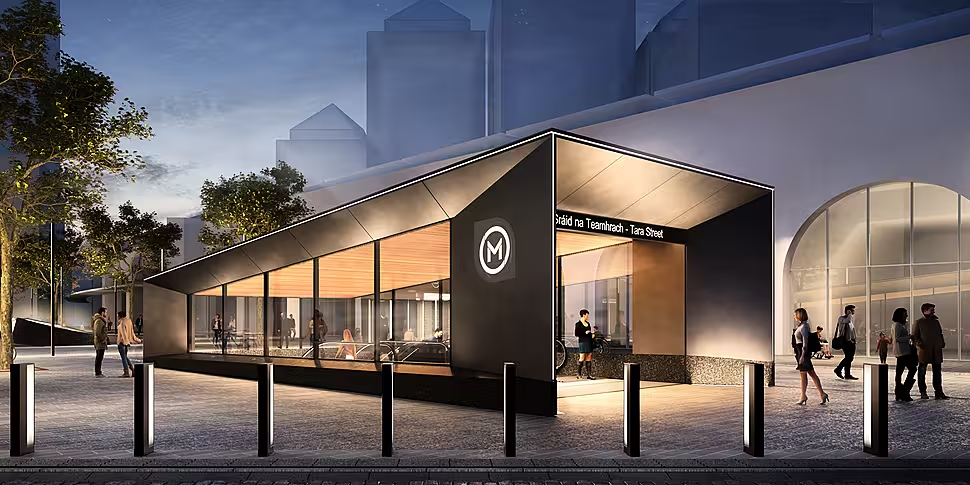The Dublin Metro is "far too expensive" given the "very good bus services" linking the city to the airport, according to one objector.
An Bord Pleanála will hear discussions and examinations of issues surrounding the proposed MetroLink over the next five weeks.
One issue that may arise, according to economist Colm McCarthy, is whether a new connection from the city to Dublin Airport is even necessary.
“[Engineers] don't appear to understand that there is already a tunnel between the city centre and the airport,” he told Newstalk Breakfast.
“It’s called the Port Tunnel and that’s what the buses use.
“I'm not saying I doubt their estimates of what their system would deliver... but the reality about Dublin Airport, particularly is that it has very good bus services.
“The percentage of users of Dublin Airport who rely on public transport is actually very high by European standards.”
Given the existence of bus services, according to Mr McCarthy, building a new tunnel is “far too expensive”.
 The proposed route for the Dublin MetroLink
The proposed route for the Dublin MetroLinkGreen Party TD Neasa Hourigan argued that developing public transport in Dublin does not need to be an “either-or” debate.
“The Port Tunnel is actually an apt example because there was a huge amount of resistance and concern around cost around it," she said.
“The reality is that with a MetroLink, a heavy rail, the big win is capacity.
“Yes, it is expensive - look at the Crossrail project in London recently.
“But in terms of capacity, the sheer number of human beings they can move at speed is unlike anything else.
“We know that particularly in Dublin, the population is increasing, and there is no other option in terms of that capacity.”
Spending on the Metro
The proposed MetroLink would allow people to travel from Swords in north Dublin to Charlemont in Dublin's south city centre in 25 minutes.
Mr McCarthy said the bottom line is the cost of the railway isn’t worth it if people don’t use it.
“My problem is that I am not satisfied that spending all this money will actually divert a huge number of people from cars or divert people from a bus service which is currently just fine,” he said.
Deputy Hourigan also pointed out that current data suggests that of the 53 million expected Metro trips in the first year, over half will be people leaving their cars at home.
The overall project is expected to cost between €9 and €12 billion euro and is aimed for completion in 2035.









